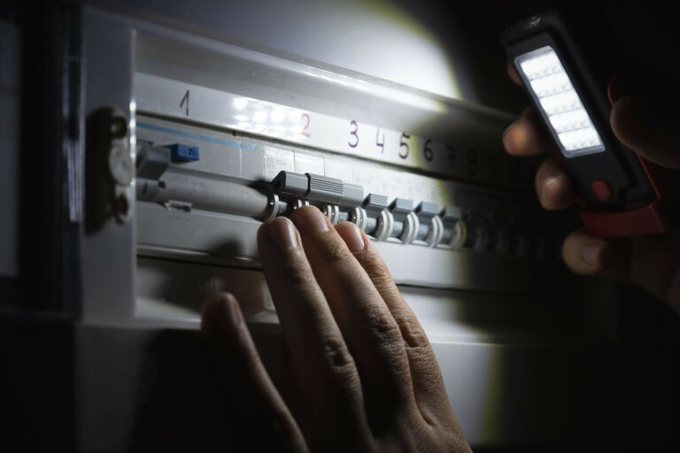December 10, 2025 | 05:20 GMT +7
December 10, 2025 | 05:20 GMT +7
Hotline: 0913.378.918
December 10, 2025 | 05:20 GMT +7
Hotline: 0913.378.918

Electricity supply is crucial at all stages of the supply chain, including slaughter, processing, and storage. Photo: Canva
Ukraine is suffering from some of the worst power outages since the start of the war, Time Magazine recently reported, citing local officials. Russia has knocked off around 60% of the Ukrainian power-generating capacities, which entailed rolling blackouts across the country. DTEK, Ukraine’s largest private power company, which has lost 90% of its generation capacity, has warned of a potential worsening in winter, with outages lasting up to 20 hours per day.
The repeated blackouts put the very existence of the Ukrainian poultry industry into question, Serhiy Karpenko, executive director of the Ukrainian Poultry Farmers Association, told a local news outlet Khvilya.
On average, poultry farms are left without a centralised electricity supply for 7-10 hours per day. For some operations, the supply is limited to only 4-10 hours per day, he admitted.
Diesel generators, a “band-aid” solution
Although many businesses have established backup power generation capacities, the blackouts wreak havoc on the production cycle.
“Incubation and the following rearing of young laying hens requires strict adherence to technological standards for keeping poultry for 4 months, which cannot be achieved without ensuring a stable and uninterrupted electricity supply,” Karpenko said.
Using backup capacities, such as diesel generators, tremendously spurs production costs. Besides, when such solutions are applied, an equipment failure would mean a loss of the entire flock, as farmers usually have no alternative to backup power generation. At least 1 farm in Ukraine has already lost all poultry due to a power outage.
All links of the supply chain impacted
Besides, electricity supply is crucial at all stages of the supply chain, including slaughter, processing, and storage. Karpenko revealed that the feed industry has yet to fully adapt to intermittent blackouts.
“Powerful feed milling equipment requires a certain voltage to kick start, maintain operation, and ensure all related processes of manufacturing feed per existing standards, which diesel generators are simply incapable of providing. The inability to produce feed is fraught with the inevitable loss of poultry,” Karpenko warned.
Blackouts also put pressure on trade, as problems with refrigerator equipment’s functioning mean a higher rate of food spoilage. Karpenko indicated that this factor put additional pressure on consumption.
(Poultryworld)

(VAN) Initiative launched in Cairo honors villages that are helping drive agrifood systems transformation.

(VAN) The European Union agreed Wednesday to phase out Russian natural gas imports by late 2027 as part of an effort to end the bloc’s decade-long dependency on Russian energy.

(VAN) Indonesia plans a US$1.2 billion investment in feed mills to boost poultry feed production.

(VAN) Japan's average retail rice price hit a new record high for the first time in three weeks, according to agriculture ministry data.

(VAN) The use of antibiotics in treating livestock in the UK has fallen, according to a new report released by the government’s Veterinary Medicines Directorate.

(VAN) Newly designated initiatives in Australia, Canada and South Africa represent science-based and inclusive examples of ecosystem restoration.

(VAN) Rice-based food has been selected as Japan's 'Dish of the Year' for 2025, reflecting public interest in the stable supply of the country's staple food amid a recent rice shortage.